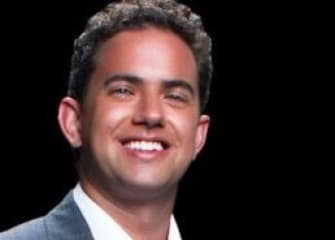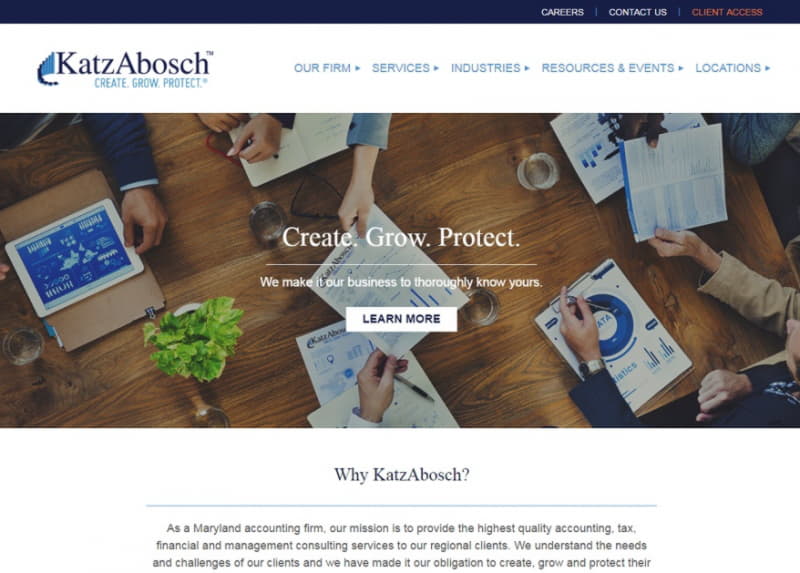
Daniel Freedman
Click here for Part I & Part III
What’s going to make you, your family and your coworkers more likely to actually stick to your New Year’s fitness and health resolutions? That’s the question BurnAlong’s co-Founders Daniel Freedman and Mike Kott set out to answer with their founding of BurnAlong last year.
The answer, as it turns out, is to find motivation from the people around you, whether it’s your local personal trainer, or simply a friend, family member or coworker. As Daniel tells interviewer and marketing guru Len Markidan, research shows that people are 65% more likely to achieve their fitness goals if they involve someone else. That’s why on BurnAlong – available via computer, smartphone or tablet – members can take classes online on-demand, and invite others to join them in live private workouts. By partnering with local gyms and studios to film and upload their classes – rather than competing with in-person gyms, as most online fitness companies do – BurnAlong is poised to transform the digital health and fitness market.
BurnAlong is available for anyone to sign up at
their website, or on the Android and Apple app stores. Additionally, companies looking to offer BurnAlong as part of their corporate wellness plan can get more info on the site. Organizations using BurnAlong include the Baltimore Ravens, The Ulman Cancer Fund for Young Adults, BlisPay RESE Title, Clearview., and Brown Advisory
Daniel started his career as a journalist, writing for publications like the Wall Street Journal and co-authoring a New York Times top-10 bestseller, before moving to the policy world, working at places like the United Nations. Kott, his co-founder, started at Black & Decker before joining Bill Me Later, which was acquired by PayPal for $1 billion.
If the psychology of motivation is of interest, and fitness important to you, you’ll enjoy this interview.
LEN MARKIDAN: Now, you’ve taken investment from a number of very prominent organizations here in Baltimore: Tedco, UMD, Abell Foundation, and a number of others—and specifically, Johns Hopkins: you’re in a pretty unique program there. How has Johns Hopkins been supportive of you and helped you grow?
DANIEL FREEDMAN: They’ve been a terrific support for us. What’s especially interesting for us is fitness is really just the first step. What we’re seeing on the fitness side is people are exercising more and are more likely to stick to their routines. And just as that makes sense in fitness, it makes sense in areas in the wellness space, like nutrition and physical therapy, and that’s really where Hopkins’ expertise comes in. It’s one of the best known hospitals in the entire world. That brings [not only] an immense amount of credibility, but immense amount of insight into what works and doesn’t work. Having access to researchers, doctors, practitioners at Hopkins is immensely valuable for us.
You mentioned something in one of your answers a couple of minutes ago that I’d like to hone in on: you mentioned scalability. I think [for] a lot of startups, before they learn the hard truth, they imagine that “from day one, we’re going to have this scalable, repeatable process that’s just going to work.” But that’s often not the case. I mean, a lot us have repeated often Paul Graham’s refrain: “do things that don’t scale.” Every startup in the early days has to do things that don’t scale. And, I know that there are some instances where you guys had to do things that don’t scale. Can you share some of those? What did you do that you knew wasn’t going to be something that would take you from $1 million to $2 million, but what did you have to do from day one to get off the ground?
One amusing thing was just as we were starting, we had the idea: “let’s hand out balloons outside an Orioles game,” because they’re like our target demographic. A lot of the people initially who come to BurnAlong are people with young kids, people early on in their career, who are struggling to find the time between family and work to exercise. And we thought, “there’ll be a large group of people outside there,” and so we set up a stand, we were giving out balloons, but it didn’t end so well because what we discovered was is that the security of the stadium didn’t want people carrying sticks into the stadium. We had the balloons on sticks. There weren’t smiles all around. We had to wait for people after the game to get it.
But you’re exactly right. What we’ve learned is you have to try a hundred different things, see what works, and then get into it. What’s interesting, in other areas of my career, like when I used to work with top leaders in the United Nations or leaders of different countries, often I’d see people get the question saying, “How did you get to your position? What’s the path that I should take?” What’s fascinating is every single one of them gave the same answer, unknowingly. They said, “my path is untraditional, but here’s probably what you should do.” The big lesson for me was actually you’ve got to try a whole [lot of] different things because if someone’s already taken that playbook, it’s not going to work for you. You’ve got to try different things and find your own path. For us, we’re very big believers in trying things: if they work, keep going; if they don’t, try something else.
Going back to your work at the United Nations and going back to the career that you had before, like I said, it’s not a traditional path for a tech startup founder, and I’m sure that it gives you a very, very unique perspective. One of the obvious things is you’re probably a lot better at diplomacy than most people in the field, but I’m curious: What else have you taken from your past experience at both the UN and working in DC, and working as a journalist, that has helped you as a founder of a software startup?
I think it’s probably a couple of things. Number one: there is the element of journalism, asking why, and getting a deeper understanding. And sometimes through that investigation, [we can] come up with a different solution than what had been previously accepted as a norm. I think that’s definitely one big piece of it.
The other piece is looking at partnerships that people may not have traditionally looked at, because they’re used to looking at something from a certain framework, but there’s a way to bring in other pieces instead that could really make a difference. On our part, it’s working with businesses now and local communities, and thinking how we could help a community’s wellness, not just individuals one-by-one, is one piece of it. It’s really partnerships and I think just an approach and a framework of looking at things.
How have you jumped on that in terms of helping communities with wellness?
This ranges. We’re starting to do some work with different charities, for example, where if you think about patients who have to spend extended periods of time in the hospital, and exercise as part of the rehabilitation, but often they’re away from their friends and family, BurnAlong is a great way for them to stay connected and bridge that gap.
More broadly, we look at the numbers in this country. Eight out of 10 Americans don’t get the recommended levels of exercise. That affects life expectancy, propensity to get heart disease, or other challenges. A big question for cities, governments, and now technology companies that are looking at this is: How can you get more people exercising? And how can BurnAlong play a part in that, whether it’s doing things in the public, whether it’s bridging gaps between different communities, whether it’s showcasing things?
Another bit is it’s very popular, traditionally, the online exercise world to see on the screen 25-year-olds who look like they’re off the cover of GQ magazine. They all look perfect, and they probably work out six hours a day. Most people, myself included, don’t have the time to work out six hours a day, and it’s not realistic to think that we’re going to look like that. For a lot of people, when they start exercising, after three or four weeks they’re going to give up because they’re not seeing that type of results. What we’re very focused on is showing regular people, making it accessible, and showing all different types of workouts.
We’ve got, for example, from Houston, some workouts—yoga for seniors. If you’ve got back issues, you’re hunched up, simple yoga stretches that would do wonders, and people just rave about. We’re really geared towards all different people, from 22-year-olds who are trying to maintain their college-level fitness, right through to 65-year-olds who are trying to lose a bit of weight and get more flexibility and ease back pain.
It’s pretty clear how consumers win: It’s an easier way to work out. Adherence is higher. It’s pretty clear how gyms win: Members get more excited. There’s less churn, more attention. How does BurnAlong win?
We win from those two being successful, because the more gyms on the platform, the more choice, the more people are attracted to us. The happier consumers are, the more friends that they’re inviting, and it really grows from there. It’s the beauty of being a marketplace, whether it’s something like Spotify, something like Amazon—if both sides are happy, it’s a win for the platform.
Connect with Daniel on LinkedIn

Sponsored by:
Founded in 1969, KatzAbosch is one of the largest CPA and business consulting services in the Mid-Atlantic region. Our mission is to provide the highest quality accounting, tax, financial and management consulting services to our clients. We understand the needs and challenges of our clients and we have made it our obligation to create, grow and protect asset value. The experts at KatzAbosch offer a full service solution while maintaining a tradition of ethics and incorporating the latest technology and unique business practices. Excellence in an industry often begins with how those closest to the company—its clients and employees—feel about it. For these individuals, KatzAbosch is a place where people and businesses excel and prosper. Our advisors can meet all of your service needs including; Audit & Accounting, Business Valuation & Litigation Support, Consulting, Estate Planning & Administration, Financial Institution Services, Forensic Accounting & Fraud Examinations, State and Local Tax (SALT), Taxes & Planning.


Edwin Warfield, CEO of citybizlist, conducts the CEO Interviews.
If you're interested in reaching CEOs, please contact edwin.warfield@citybuzz.co
Connect on LinkedIn




































